GUSS HOWARD
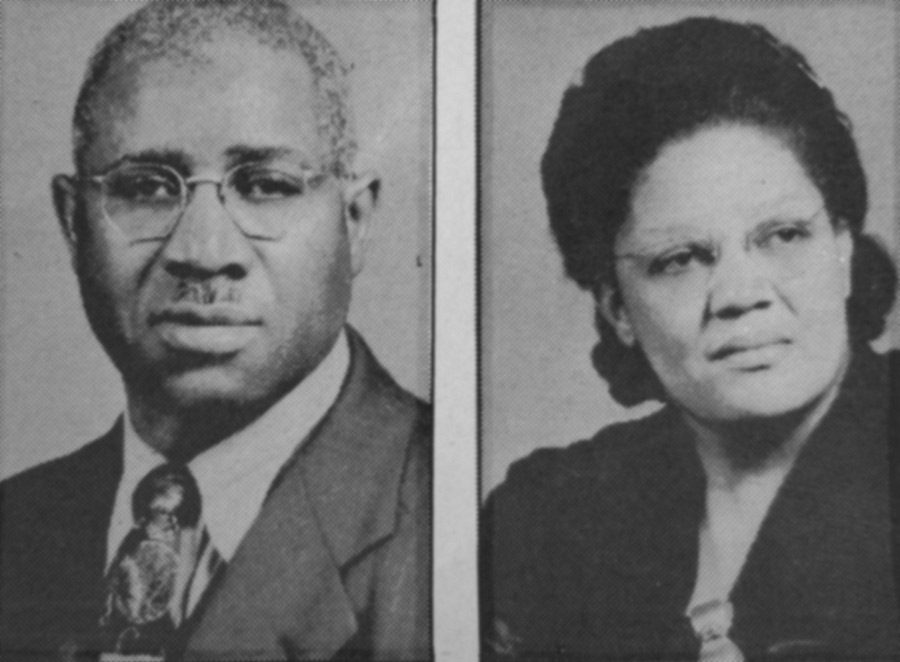
In 1922, the Ford Motor Co. advertised in newspapers in Georgia seeking people to work in its Detroit automobile plant. Guss Howard, his wife the former Charleana Flowers, and their children were living in Savannah, GA, said his daughter Gussie Clark.
When Guss saw the ad, he knew it could mean better opportunities for him. So, he left his wife and children behind and went off to Detroit. They later joined him there. He worked at the car manufacturing company for the next 30 years.
His brother Walter and sister Elizabeth had already migrated to Detroit.
“He was a factory worker in our early years,” said Gussie. “He sold ice and coal while working in the factory. We always had food on our table and clothes on our back. He built a nice home for us.”
Guss was among the thousands of Blacks who migrated from the rural South to industrialized areas of the North, many of them stopping off in Detroit to work in Henry Ford’s automobile plants. By 1920, 8,000 Blacks worked in plants in that city, according to a PBS feature on Henry Ford.
In Savannah, Guss was a railroad laborer who was buying his own home, with a wife and three young children, according to the 1920 Census. In Detroit, according to the 1930 Census, his family had grown, he owned his own home, and he was a laborer at the auto plant. By the 1940 Census, he was a molder at the plant.
An industrious man who attended night school regularly, Guss built his own home in Detroit – which was financed through a local bank – with the help of other building tradesmen.
He believed in growing vegetables, something he had learned on the farm as a child in Georgia, where he was born on Feb. 25, 1888. His Army registration card listed him as having been born in Bolingbroke where Green and Rebecca were living when the 1900 Census was taken.
Green Howard stayed with Guss and family- as well as his other children – when he visited Detroit in the 1930s. Guss told his children that his father Green was a hard worker. “They had a pretty good life living on the farm until his mother died,” said Gussie, “and all the older kids left home. He talked about it all the time.”
Guss and Charleana were living in Savannah in 1917 when he registered for the U.S. Army draft. He was among the millions of men drafted under the Selective Service Act of 1917.
As the country prepared to go to war with Germany, it sought to build up its sparse military. Guss and his brothers Walter and Alonzo were among the men required to sign up in the first round of registrations on June 5, 1917. His brother-in-law Bailey McClendon, who had married Guss’ sister Irene in 1915, was among the third round of registrants, on Sept. 12, 1918.
Guss and Charleana had five girls – Gussie; Willie (who died from a tumor when she was in her early 30s), Jeannette, Gertrude (who died at age 18 in 1943) and Bertha. They had five boys: Charles (who died after a car accident at age 25 in 1940), Walter, Johnny (who was killed during a burglary in his home when he was in his mid-30s), Oran (who died of diphtheria in 1936 at age 7) and Oliver. Information regarding several of the deaths was taken from their death certificates.
Guss had a large garden in a vacant lot near the family’s home, another down the street on city of Detroit property and another on property owned by the Ford company.
Charleana died in 1944, and Guss later married Katie Asbury.
He was a strict disciplinarian, and he loved his family dearly. He was a skilled automobile mechanic, shoe repairman, carpenter and plumber. He operated a grocery store and used his truck to deal in scrap metal. And he started a laundry service. He sold ice in the summer and coal in the winter to supplement his income at the car factory.
“Dad was a versatile man who could repair anything,” said his daughter Jeannette Davis. “He once took a car motor apart, reassembled it part by part, reinstalled it and the car ran.”
“He was ambitious, spelled with all capital letters,” said his son, the Rev. Walter L. Howard Sr.
He was also a man who believed in the power of education. He worked during the day and went to night school every chance he got. He had arrived in Detroit with a third-grade education, said Jeannette.
“He drilled in us to get an education,” she said. “When you get an education in your head, the white man can’t take it away from you. That’s what he always said.”
Guss loved to sing, and enjoyed the girls’ playing the family piano as he and other family members sang hymns. He was an avid reader.
Brother Guss, as he was called by his peers, was a God-fearing man who loved Sunday School. He was a deacon in his church.
“My father would take us on Sundays sometimes to the park or zoo, when we would be too late for church,” said Gussie. “He never liked to miss church.”
Guss died on July 17, 1965, at the age of 77.
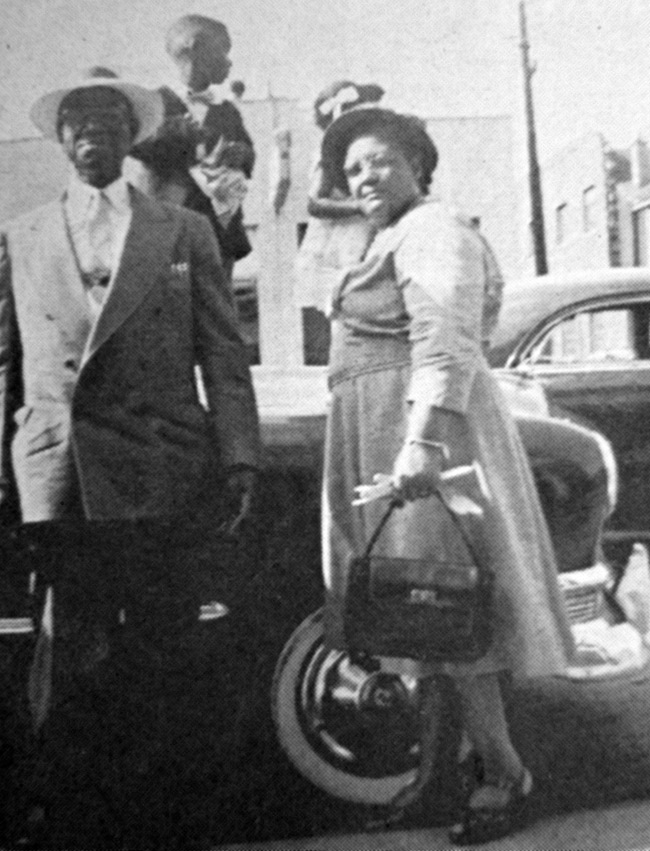 Guss Howard and Katie with grandchildren Vincent and Jackie in Detroit.
Guss Howard and Katie with grandchildren Vincent and Jackie in Detroit.
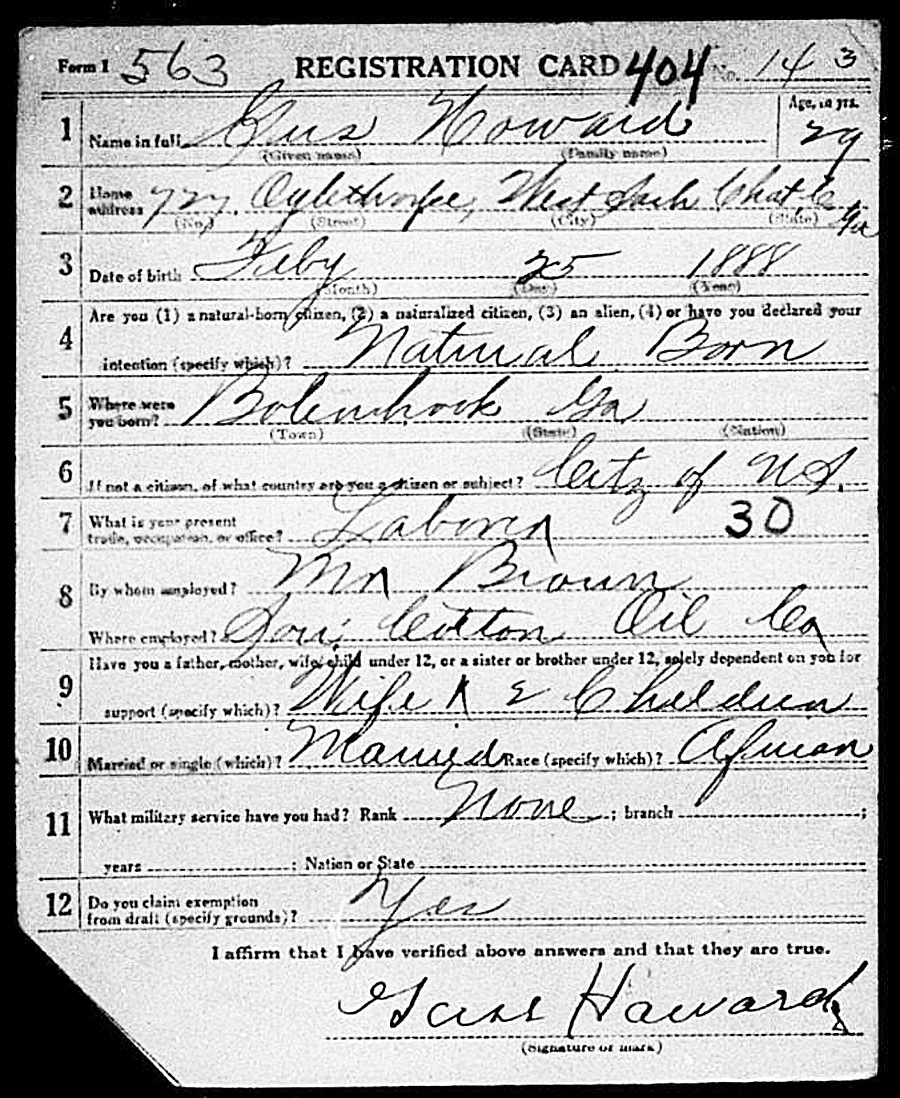 Guss’ Army registration, 1917, page 1.
Guss’ Army registration, 1917, page 1.
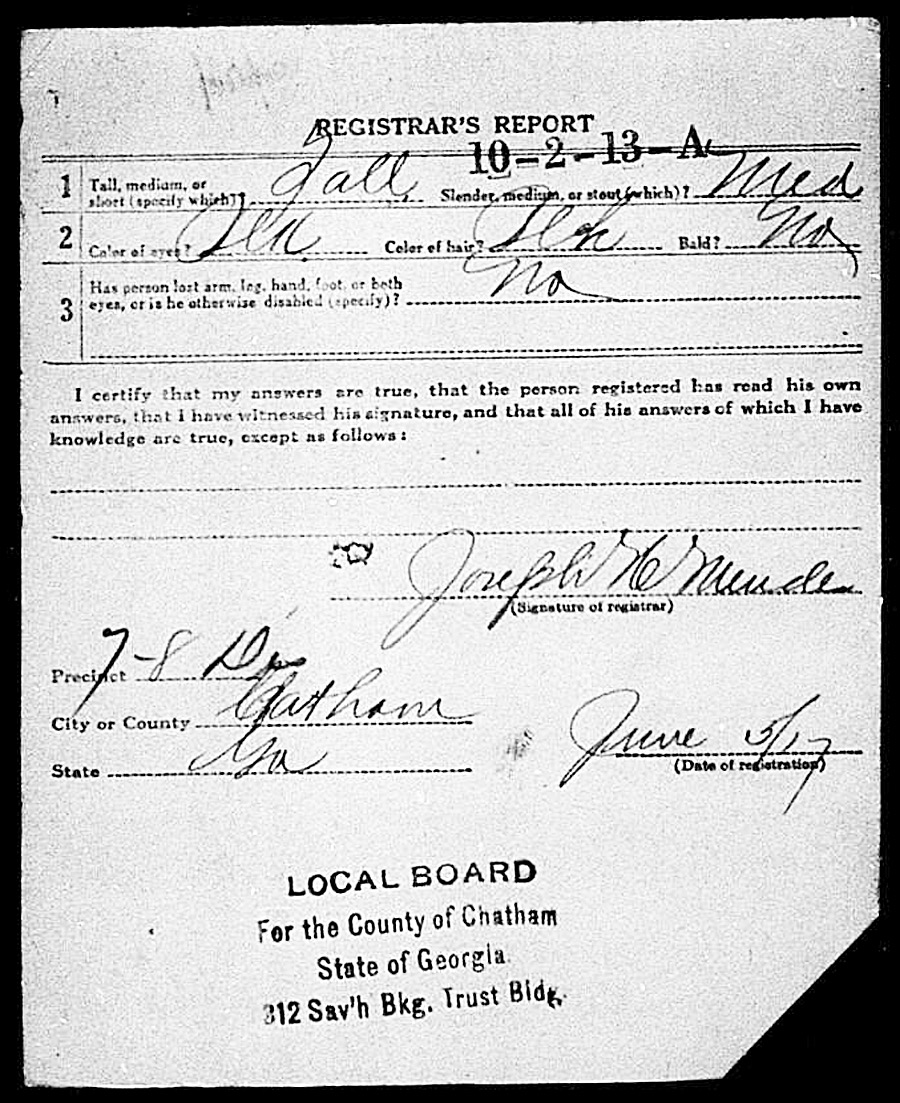 Guss’ Army registration, page 2.
Guss’ Army registration, page 2.
_____________________________________________________________
 Guss, Charleana and their children in Detroit in the 1920 Census.
Guss, Charleana and their children in Detroit in the 1920 Census.
_____________________________________________________________
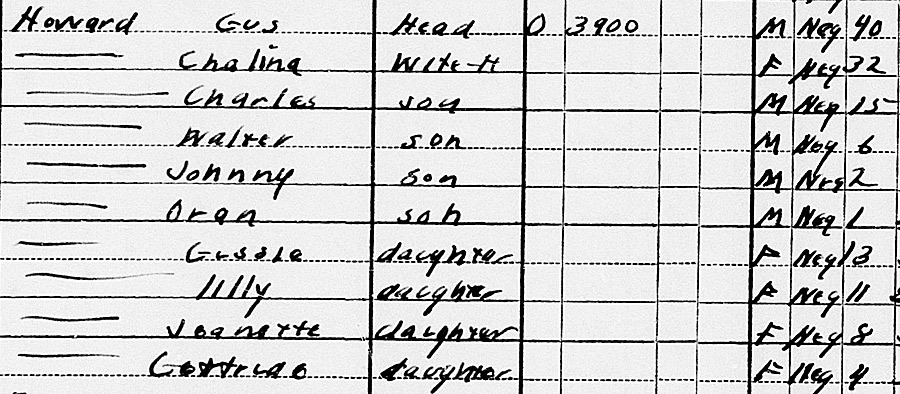 Guss, Charleana and their children in the 1930 Census.
Guss, Charleana and their children in the 1930 Census.
_____________________________________________________________
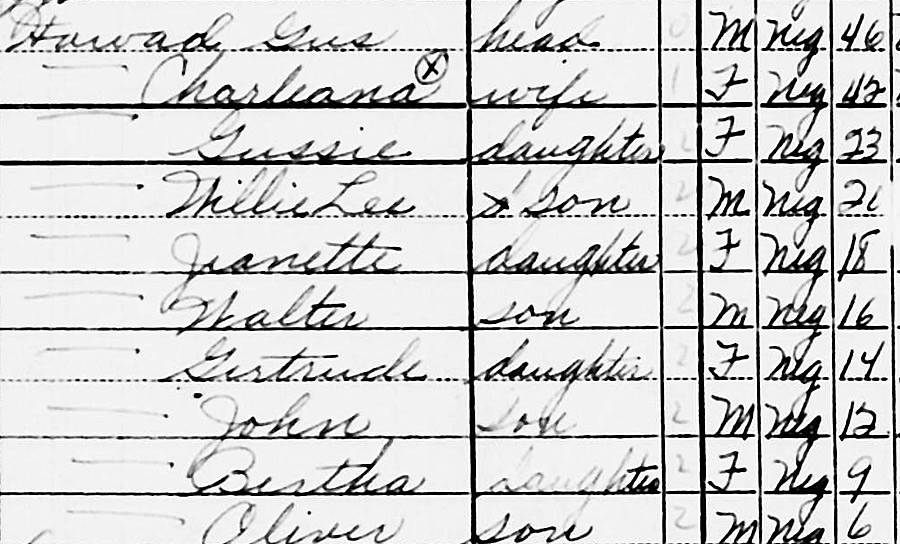 Guss, Charleana and their children in the 1940 Census.
Guss, Charleana and their children in the 1940 Census.